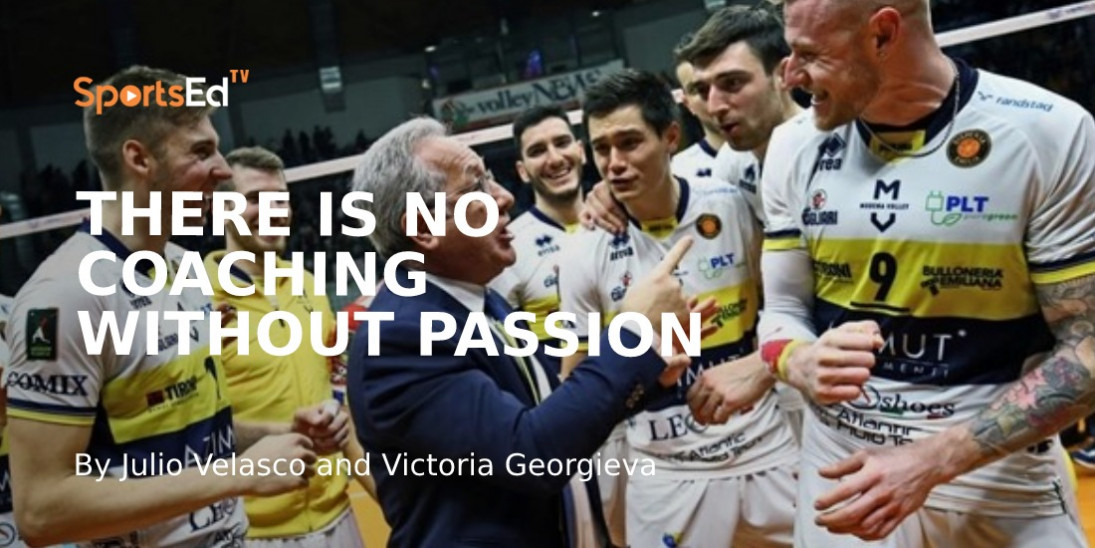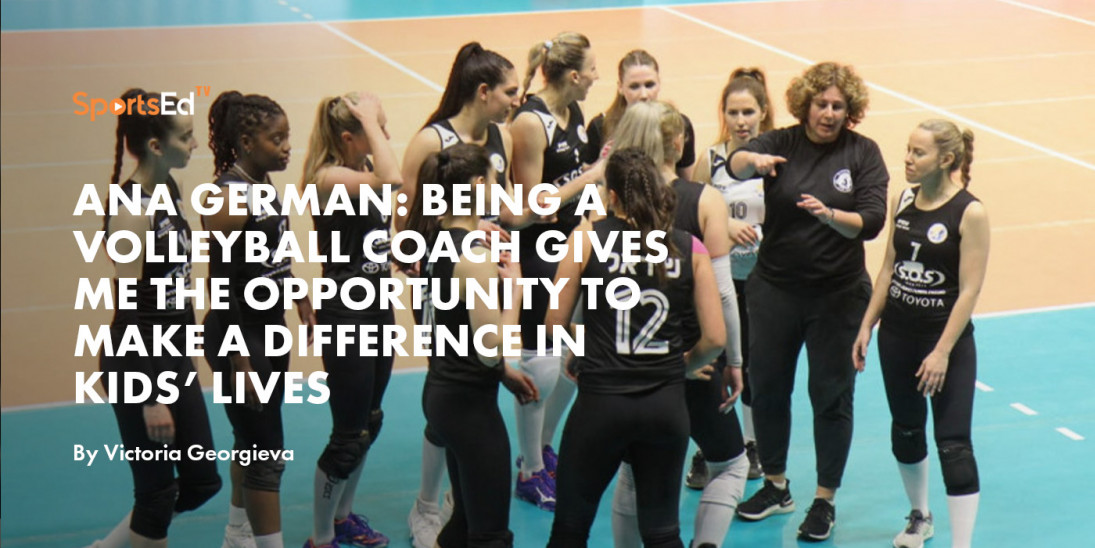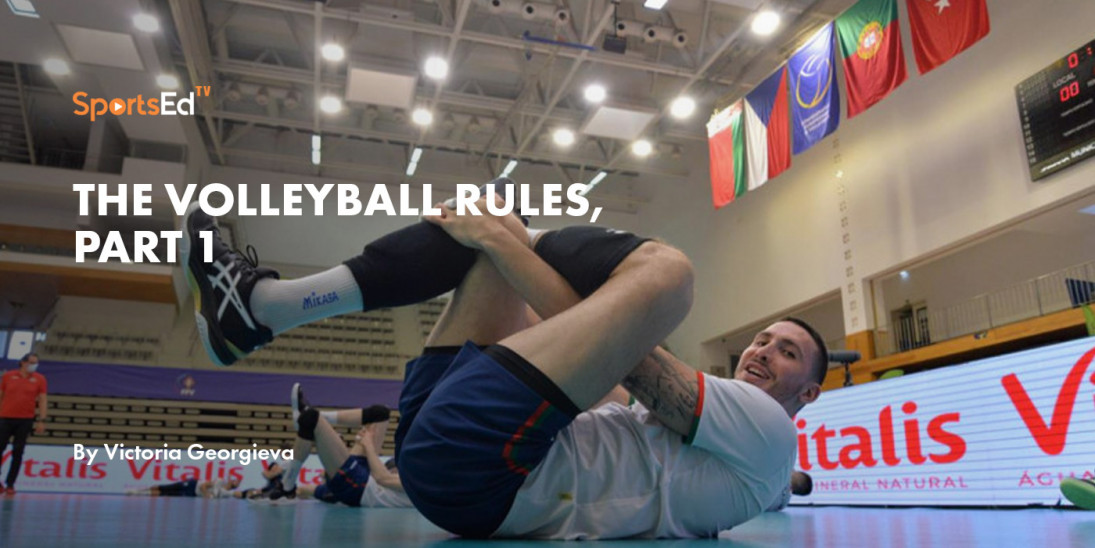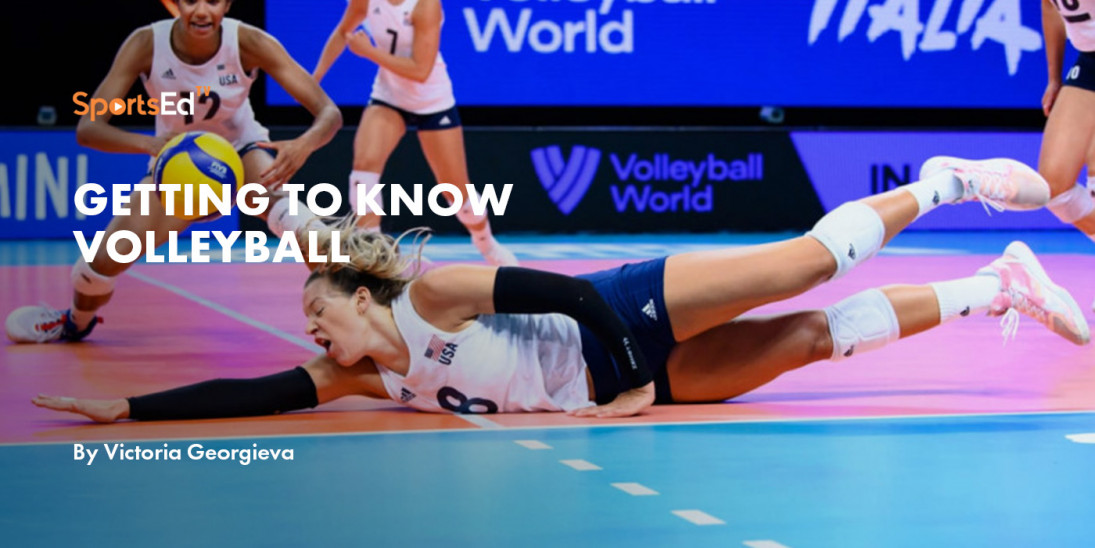Volleyball
Welcome and thanks for visiting...

What Does Volleyball Give You Outside of the Sports Hall?
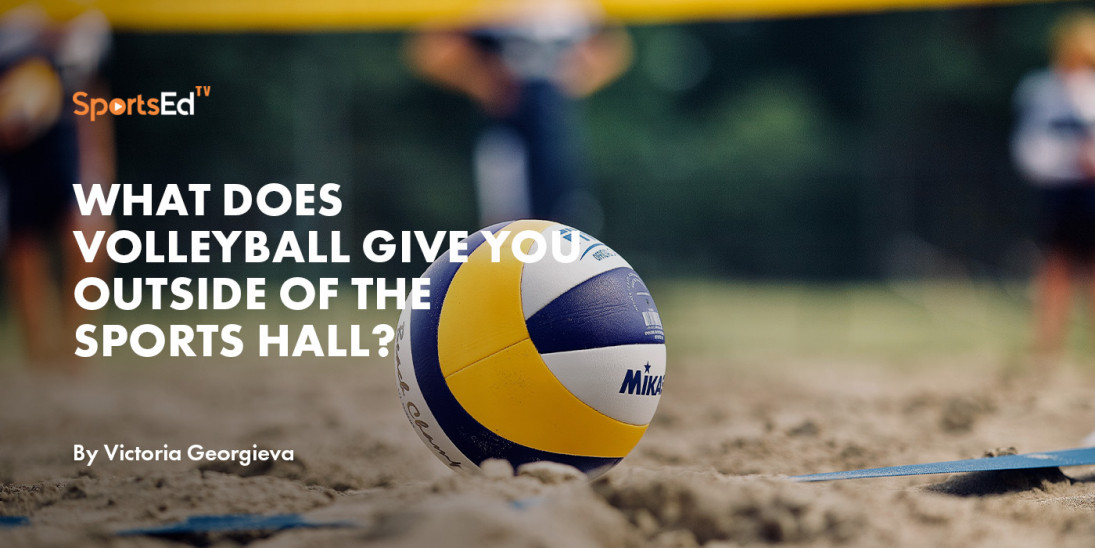
When I think about my relationship with Volleyball, and being completely honest with you, I will have to share that this relationship is not something that has brought only “smiles on my face”.
Yes, you read it right.
Both as a player and as а journalist, I have had many “ups and downs” with the game. There were times when I would spend hours and hours, and hours in the gym, and then there were times when I would just sit around with an injury, looking desperate and hurting.
There were the times when I would go excited for covering an European Championship, and then there were the times when I had to do so many things reporting, while having 6 flights in 5 days.
Why am I telling you all this?
Because as I grow older, I realize that, these “ups and downs” are the best things that Volleyball has given to me.
Of course, I cherish all the great memories and they are much more than the bad ones. But without the bad ones, I wouldn’t have discovered so much about myself both on a professional and a personal level.
I am telling you this because I am a normal person. I haven’t won a World Championship, I haven’t gone the Olympics. I was just training for years, playing on a local level, as many of you are doing.
And still, Volleyball has given me so much. And it sure can give it to others.
I believe that the ones, who are just starting with the sport, must know that even when you love something so much, that doesn’t mean that you won’t have your “nah, I can’t do this anymore” moments.
And because beginners need to know that these moments will pass, and what Volleyball will give them, is much more than the momentous pain or difficulties that they would need to overcome.
What will Volleyball give you?
I am not a researcher and I don’t spend my days collecting data to further analyze it. Therefore, the following list is not science based. It’s completely personal and completely true to me.
Even though I am not sharing a research based evaluation, I have had the chance to talk to many inspirational athletes and coaches along the years, and to listen to them. To learn from them. I also try to observe my life from the sports perspective and to make the comparison between what was it like in the sports hall, and what is it like in my daily life now.
When doing that, I cannot not see how Volleyball has shaped my character and how it has helped me through many life difficulties. I am quite sure that without that mental training received from the years spent in Volleyball (as a player), I wouldn’t have survived my life crisis given that they weren’t small ones and had changed everything for me and my family.
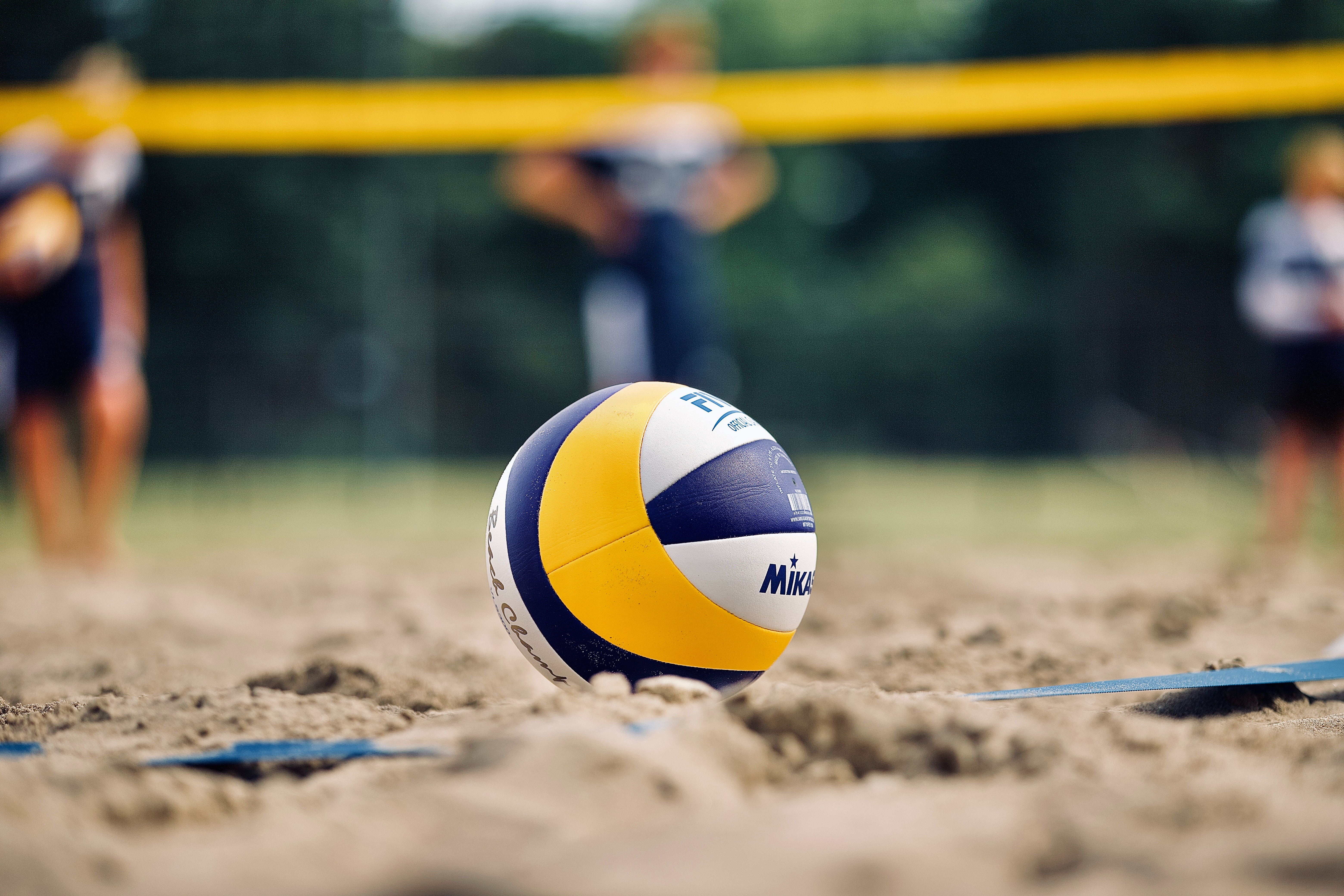
- Taking control of your life
Not everybody is born with the set of skills that would allow him or her to lead people toward reaching a common goal. And not everybody is meant to do that. It’s ok. Not being able to have a group of people following you is fine, as long as it fits your character, your life situation and doesn’t interfere with your authenticity and performance.
But I do believe in another concept of leadership. The leadership that allows you to take the control of your life (as much as possible given that sometimes there are circumstances that don’t depend on you. But hey, you can still react as you do it in the gym!). The leadership skills that you will use to lead yourself toward becoming a better version of yourself. It might sound not-that-much-important, but actually is the basis of everything. Because if you can’t lead yourself, you can’t lead others.
So, first of all, you can and you should be the leader of your life.
Volleyball has taught me that, from this point of view, most of us have these hidden qualities. Only if we want to discover them.
You and yourself only can work hard in the gym to become better in defence, for example. You and yourself only can study hard in the library and write a master thesis in another language that is not your native.
You can take the initiative of saving the ball or you can leave it. You can take the initiative of changing the course of your life if you are not happy with it, or you can continue ahead as if it was ok. It’s up to you.
If you have your eyes wide open, metaphorically speaking, Volleyball will give you the power to take control of your life. To be aware that as long as you are willing to, and you are focused on your development either on becoming a better hitter or a better writer, you can do it.
Don’t get me wrong, a leader in Volleyball, as in life, will not be the self-centred person who would like to take all the credit for the job done.
Leading yourself (in life and in Volleyball), you will have to:
- Show integrity to yourself first. Stay honest, as you would need to stay honest on the court, with your teammates.
- Keep on learning as we do on the field. Each day. Listen and discover from your teammates, coaches, or from your colleagues at work.
- Be consistent. You will have to do the repetitions – doing a drill or completing an assignment you don’t want to, you have to stay consistent.
- Trust yourself. And the others. You can’t achieve anything in sports, if you don’t trust yourself and your teammates. Although trust is scary sometimes, you have to have it. Great leaders do so.
I assure you, these are life skills that Volleyball, if done right, will give you. Being a leader to yourself doesn’t mean that you will enter all the battles arrogant with know-it-all-can-do-it-all attitude. It means that you will be as supportive to yourself as you are to the others.
Step by step, you will start feeling more confident. And you will believe in yourself. Because without belief, you can’t score that point and neither can you survive in life. Someone much more successful than me has said it:
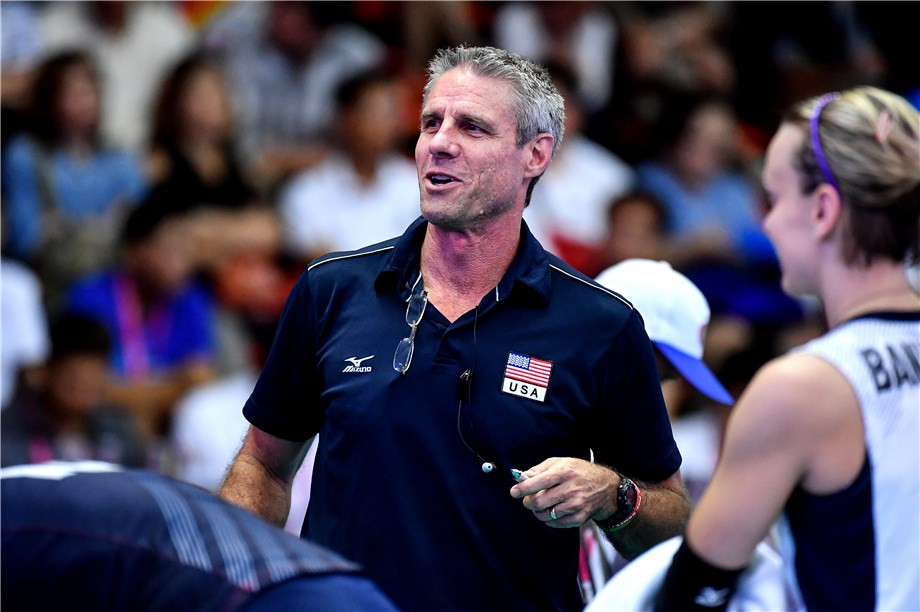
Karch Kiraly, photo source:FIVB
Karch Kiraly, apart from successful and famous Volleyball player and coach, he is the first person to have ever won gold medals in both indoor and beach volleyball
- Working in a team
Being your own leader does not mean that you won’t be part of a team. As in Volleyball, in life you will have to interact with different people many times. Sometimes you will feel at ease, sometimes, well, it will be not the best experience in your life.
To me, working in a team, also teaches patience. You need to remain patient when in training, you repeat and repeat an exercise and it doesn’t go well.
You need to remain patient also if your team has lost some matches in a row. Moreover, you will need to combine this patience with empathy toward others. Toward your teammates when they pass through a difficult moment, and you need to lift them up. This why is it called “teamwork” – of course, because everybody has their own chores to do, but also because teammates are there for each other to celebrate the victories and support in the loses.
Knowing how to balance between these two, is a quality that you will need in life, too.
And don’t forget the following! Wise words from one of the most successful coaches in Volleyball history:

- Overcoming the difficulties. And learning how to win… or how to lose
It might sound clichéd, but you will need to know how to fight in life. But most importantly, you will have to train yourself on how to overcome the difficulties. And Volleyball can give you good base for it.
Yes, Volleyball is not Basketball or Soccer, and you don’t have that much physical contact with other players. You rarely will fight with them physically. However, you will have to face your fights, that’s for sure. These will start from the moment when you have the ball in your hand and are ready to serve, looking in the opponents’ eyes. Through the moment when the middle blocker records an amazing block, for example. To the moment when you claim a victory. Or a lost. Both is possible. And in both cases you will need to put up some fight and to exceed your limits. Because overcoming the difficulty not always equals a win. Sometimes it equals analysing the situation from a different angle and run away from the “culture of alibis”.
The grand Julio Velasco, member of the Volleyball Hall of Fame, explains it:
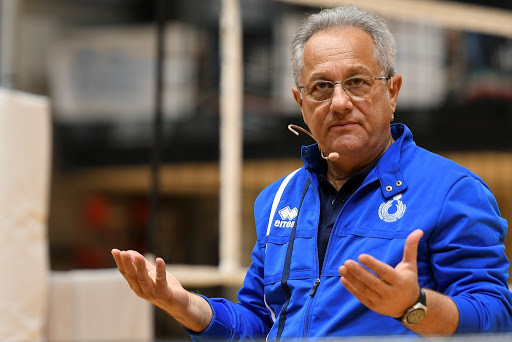
- Seizing the (unexpected) opportunity and stay flexible
Grabbing a chance is usually perceived as “the lucky situation of being the right person in the right moment”. In the fairy-tale world that is true, but sometimes in real life and in Volleyball you need to seize an opportunity no one expected you to.
Do you like it when watching some Volleyball matches and see the setter doing a tricky move and scoring an unexpected point? Or maybe you have seen some incredible performances of a famous libero, saving a ball everybody in the hall thought was impossible to reach?
There are many examples of how seizing an unexpected opportunity can bring the change to your life, to your career, or to your volleyball development. Such is the case of Lorenzo Bernardi, former volleyball player and currently coach, “Best Player of XX century” chosen by FIVB together with Karch Kiraly. In a TEDx Talk last September in Bologna, the famous Italian shared his story of how he became one of the most successful outside hitters of all the time.
At the age of 17, having spent years training hard to become a setter, Julio Velasco, his coach by that time, approached him. Velasco explained to him that if he wanted to become a top player and reached the national team, Bernardi would have to change his role from setter to opposite hitter. Lorenzo, himself, said that this all sounded very strange to him because it seemed that it was not coherent. After some though, however, he decided to face this challenge. And the rest is history, as they say.
Now, let’s have a look at our lives. How many times have you had to take the unexpected decision? How many times you really did it? Were there moments when you didn’t seize the opportunity, and years after, you were thinking to yourself, you should have done it?
Taking the unexpected decision is scary. It brings you to your vulnerable self. But only by meeting your vulnerable self, is how you will going to meet your courageous self.
If you have had the courage to do the tricky point, or to save the ball no one expected you to, you will be fine by taking the unexpected decision.
Of course, I am not telling you to always do that. As in Volleyball, you need to evaluate the situation quickly. But training Volleyball and spending years in the hall, will help you to stay flexible and see the opportunities where no one else sees them.

Lorenzo Bernardi
- Looking forward to the future
Without knowing our past, we are not able to move forward. But being completely stuck into it, will not help us to further develop. It’s a matter of balance to find when to stop looking back and when to continue ahead.
In the beginning of a post-match training, the coach might (and should, in my opinion) spend some moments to sum up what went right in that exact match and what went wrong. No matter if your team has lost or has won, usually there will be some good and some bad things in the players’ performances to talk about.
But imagine that instead of spending only some minutes to do this analysis, the coach spends the whole training talking about that exact match. How exactly will the players feel? Will they be able to reach their potential in the training?
If they had lost the game, some of them will be down and will not be able to focus. Others will rely on their anger to motivate themselves, but anger doesn’t always work this way.
If they had won, they might take it easier and think there is no need of improvement.
This is why it is so important to establish clear “time limits” – the time you spend focusing on your past. To keep on developing, you need to learn your lessons from the past, but you can’t live there. You should use the lesson and start again.
Same happens in life. At some point, you need to continue ahead.
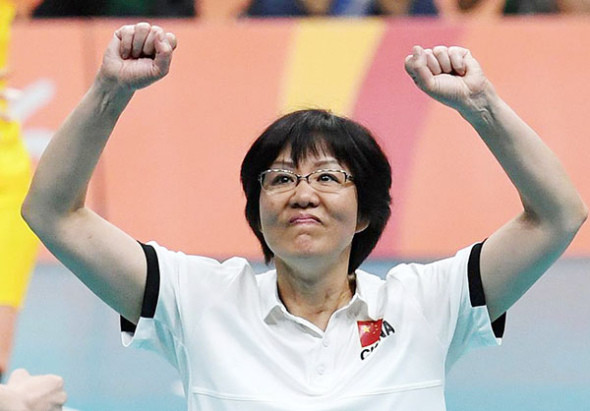
“Jenny” Lang Ping, photo source: Xinhua
You don't want to see history. You want to look forward. Just concentrate to go your own way.
"Jenny" Lang Ping, Former volleyball player, coach of the current Olympics champions of China's women's team
Volleyball will teach you a lot. Each one of us would have their own lessons, their own experiences. But what Volleyball does best, is “translating” the life challenges on the court. And the great news? Lessons never stop.

